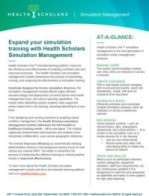
© CEOCFO Magazine -
CEOCFO Magazine,
Phone: 727-
Email: info@ceocfocontact.com


Search





Lynn Fosse, Senior Editor
Steve Alexander, Associate Editor
Bud Wayne, Editorial Executive
Christy Rivers -
Valerie Austin -





 Print -
Print -
Using Virtual Reality to Transform Clinical Training and The Safety of Patients
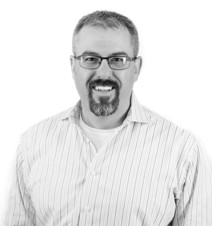 Cole Sandau
Cole Sandau
Chief Executive Officer
Health Scholars
Contact:
Chris Ingwalson
888.584.8845
Interview conducted by:
Lynn Fosse, Senior Editor
CEOCFO Magazine
Published -
CEOCFO: Mr. Sandau, the first thing I see on the Health Scholars website is “We are on a mission to save lives.” Would you tell us how you plan to do that?
Mr. Sandau: When it comes to ensuring patient safety, it is critical that pre-
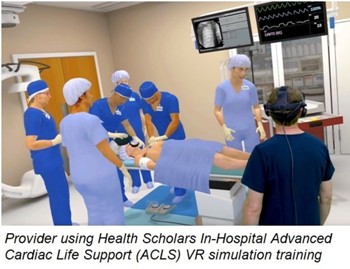 But with virtual reality we can scale experience and performance assessment, improving the overall clinical readiness that can help reduce medical errors and save more lives. Thus, our mission is to advance healthcare training through virtualization, making experience-
But with virtual reality we can scale experience and performance assessment, improving the overall clinical readiness that can help reduce medical errors and save more lives. Thus, our mission is to advance healthcare training through virtualization, making experience-
CEOCFO: How does the Health Scholars platform work?
Mr. Sandau: Our platform is a cloud-
CEOCFO: How does an organization interact when they are using your platform?
Mr. Sandau: The platform becomes a routine tool for providers and administrators that integrates into their typical routines and utilizes LMS and simulation management workflows and UI already familiar to them. We’ve taken workflows and offline tools our customers were already using for ongoing education and simulation training and moved them online, automated them, and integrated the right tracking and reporting.
The platform just streamlines the business process of delivering blended learning so now instead of spending days, sometimes weeks manually organizing training programs educators have the ability to customize, manage and access in-
And for the provider, experience-
In fact, there is a substantial cost benefit for this. We did a validation study with Mount Sinai for one of our applications, and found that it was 83% cheaper to execute training using our virtual tools than it was to have an instructor-
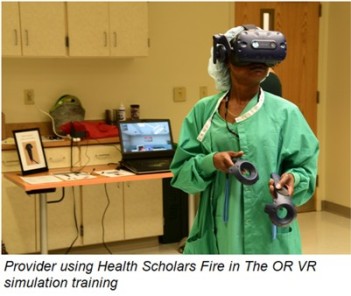 CEOCFO: Is this done in a group or one-
CEOCFO: Is this done in a group or one-
Mr. Sandau: You would target training with a group of learners based on the need. Organizations may have 100-
CEOCFO: Are learners comfortable with this approach?
Mr. Sandau: We conduct learner exit surveys when they come out of the sessions, and we are finding that we are averaging upwards of 90% saying that they are extremely comfortable with this modality and would love to do more this way, and they are completely satisfied, which compared to other forms of training, is exceptionally high. We have even seen those numbers at 96%. We attribute this to our user-
We take a deliberate approach to making sure people can get in and get comfortable with VR before the session begins. Once they are in and comfortable with it, we take them through a teaching experience on how to behave in VR and then we make the step into the experience gradual so that they start using their VR skills a little bit at a time. Because of that, people really get acclimated to the VR world easily, and within a few minutes they are acting in it just as if it is the real world. We have been able to bridge that gap nicely.
CEOCFO: What is the range of course or topics offered at Health Scholars?
Mr. Sandau: We currently offer three VR simulations; Fire in the OR for surgical fire training and Pre-
Our VR simulations will continue to center on repeatable practice of proper workflows as well as critical soft skills like communications, situational awareness and critical thinking in Resuscitation, Obstetrical Emergencies, Peri-
CEOCFO: What is the business model?
Mr. Sandau: We are focused on more of a continuous training model. Most necessary training needs to be delivered relatively continuously, and people need to be exposed to that training every three to six months. Traditional training tools do not have the ability to do that. Back in 2018, the American Heart Association published a scientific research paper on resuscitation education and it called specifically for spaced deliberate practice in a continuous way. We saw that it was very difficult to achieve that. Our tools solve for that and we are seeing impressive results.
CEOCFO: How are you reaching out to hospitals?
Mr. Sandau: Through digital advertising, traditional sales approach and interaction with the hospital and public safety community through events, professional organizations and shared initiatives. We are big believers in partnering with the community and have been fortunate to collaborate with different healthcare and EMS systems on the development of each of our applications. This has helped us organically develop new relationships and referral networks, as well as develop important relationships with the professional societies and SME’s who can help champion new innovations.
In 2020 we will be launching some very targeted, highly interactive campaigns with hospital and public safety agencies that we hope grow our reach, but also our reputation as a valued subject matter expert in the VR training space.
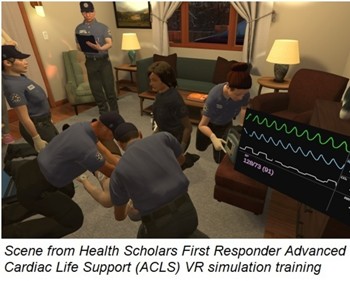 CEOCFO: Are you seeking funding, investment and possibly partnerships as you move forward?
CEOCFO: Are you seeking funding, investment and possibly partnerships as you move forward?
Mr. Sandau: We just complete our Series B Round for $17 million. The new investment round will enable Health Scholars to continue to introduce and expand new virtual technologies in both the Hospital and Public Safety market allowing for greater accessibility, scalability and immersion at up 80% less cost than traditional simulation training methods.
CEOCFO: What surprised you as Health Scholars has grown and evolved?
Mr. Sandau: What has been surprising is the ability to look at a technology like VR that a lot of people have thought of as a toy or a game and really understand how it can affect patients’ lives while also creating positive business process changes. I always tell people that my life will be complete if one person does not get burned in an operating room fire, which just feels like one of the most hideous things that could happen. If we can use VR technology to help even just one patient avoid injury or a possible medical error, then Health Scholars has succeeded. When we started this journey we set out to transform an archaic business process using virtualization, but it has become so much more. To be able to use technology to scale critical training that improves both the provider and patient experience is really meaningful and our team feels lucky to be part of it.
Health Scholars, VR Medical Training, Virtual Reality EMS Training, Cole Sandau, Using Virtual Reality to Transform Clinical Training and The Safety of Patients, Medical Companies, Technology Company, virtual reality training medical, simulation management, virtual reality medical training, vr medical training for clinicians, virtual reality training, simulation management, simulation training, manage simulation training, Health Scholars Press Releases, News, Twittter, Facebook, Linkedin
“If we can use VR technology to help even just one patient avoid injury or a possible medical error, then Health Scholars has succeeded. When we started this journey we set out to transform an archaic business process using virtualization, but it has become so much more. To be able to use technology to scale critical training that improves both the provider and patient experience is really meaningful and our team feels lucky to be part of it.”
-
Latest News
